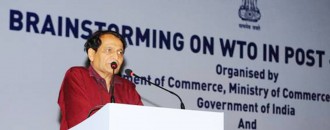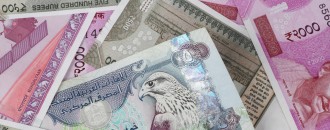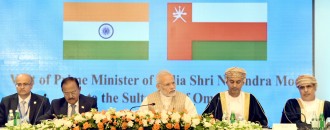
Narendra Modi talks of mandating generic prescriptions
Sneha Gilada
The pharma bigwigs, after the government recently imposed a cap on stent prices, are in for another rough ride as PM Modi seeks to make prescription of cheap generic drugs binding on doctors.
Speaking at the inauguration ceremony of a charitable hospital in Surat on April 17, Narendra Modi vowed to take on the mantle of making healthcare affordable to the Indian middle class and poor. In his speech, he averred that the health policy was being revamped after a gap of 15 years. The last time it was updated was back in 2002.
The new health policy lays special emphasis on the pricing of drugs included in the National List of Essential Medicines (NLEM), along with the timely revision of the list.
"Price control mechanisms for generic drugs shall remain a key strategy for decreasing costs of care for all those patients seeking care in the private sector," the policy document states.
The Prime Minister also promoted the Pradhan Mantri Bhartiya Jan Aushadhi Pariyojana, which manages a chain of public sector pharmacies across the country selling generic versions of costly branded medicines.
He stated that a legal framework will be put in place to ensure that doctors clearly mention in their prescriptions that generic version of the medicines would be sufficiently effective. Ideally, prescription of generic medicine translates into mentioning the composition of the drug, while leaving out the name of the brand.
Modi also said that the government was in negotiation with pharma companies to bring down costs of medicines. The goal is to bring about a balance between corporate profits and affordability for the common man.
India's flourishing generic drug manufacturing industry has been of concern not only to Indian big pharma, but globally as well. Drugs, while still on patents, being sold at minimal prices hurt the recovery of R&D investment made by MNCs for the discovery of the composition. Such a move, which could hurt the market share of patented drugs in the Indian market would drive global brands further away.
As he admitted during the speech, the PM is already facing the ire of coronary stent makers for slashing prices of bare metal stents to almost a seventh of initial cost and those of drug-eluting ones to one-fourth of the previous price. Going down this lane, however beneficial for millions of the poor, will not go down well with the profit-minded pharmaceutical companies.
With regard to the implications of such a move, The Dollar Business spoke to Dr Hari Kishan Boorugu, Consultant, Physician, Apollo Hospital, Hyderabad. When asked for his personal preference, he said, “I personally would opt for a good brand if I have to use a medication. When I look at brand when I am buying a shirt or footwear, why not when it comes to life saving medication? However, I leave it to the patient’s discretion as to whether he/she wants to use a generic drug or branded generic drug or the original molecule manufactured by innovator company.”
Preference for branded medication stems from poor quality-control exercised by the government. Summarising the repercussions of such a law on both doctors and patients, Dr Hari said, “It depends on the quality control measures the government takes in assessing the companies producing the bulk generic drugs.”
Further speaking of the impact on pharma companies, he was of the opinion that the matter was secondary to the well-being of patients. “If we can provide good quality generic drugs to our patients at a low cost, I am sure many doctors would welcome this move,” he averred.






 to success.
to success.